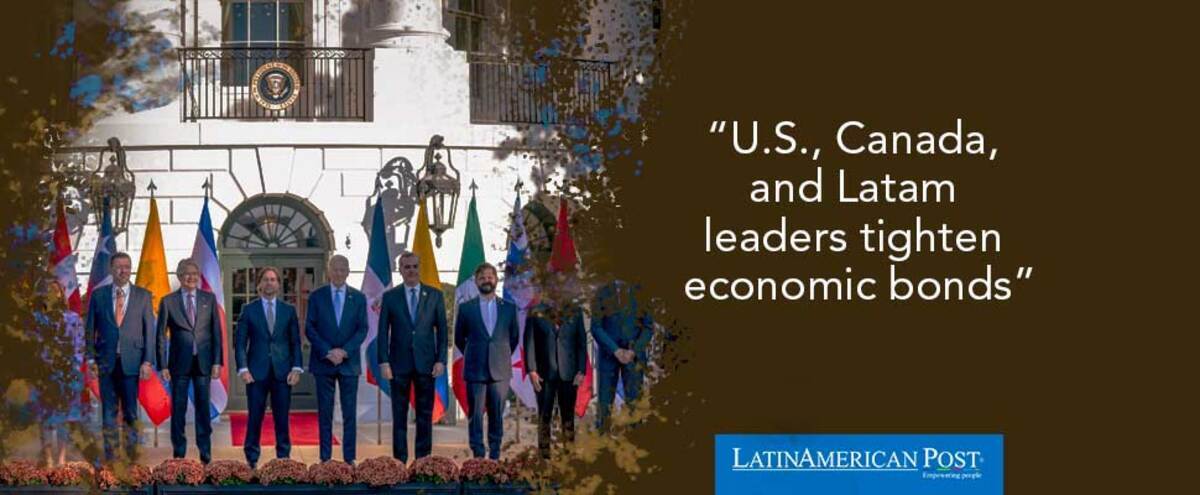Forging Much-Needed Unity for Prosperity at the APEP Summit
In the shadow of global tumult and the race for economic supremacy, the Americas Partnership for Economic Prosperity (APEP) Leaders' Summit, helmed by President Biden, marks a pivotal moment for reimagining Western Hemisphere alliances. As leaders pledge to bolster supply chains and expand regional trade, the summit could herald a new era of economic integration, challenging the status quo and setting a course toward shared growth and sustainability.

Photo: LatinAmerican Post
The Latin American Post Staff
Escucha este artículo
Leer en español: Forjando la tan necesaria unidad para la prosperidad en la Cumbre de la APEP
A Promising Turn Toward Economic Ties
In the complex tapestry of international relations, the recent Americas Partnership for Economic Prosperity (APEP) Leaders' Summit, hosted by U.S. President Joe Biden, underscores a promising turn toward fortifying economic ties within the Western Hemisphere. This initiative, pivoting towards collaborative prosperity and away from the shadow of China's global economic influence, is not just a strategic maneuver in the geopolitical chess game—it's a necessary step in the economic rehabilitation and integration of the Americas.
History needs to be kind to the economies of Latin America and the Caribbean. The specter of colonial exploitation, decades of political instability, and the contentious Cold War era have bequeathed a legacy of mistrust and underdevelopment. Economic models imposed by external powers or institutions have often either sputtered or exacerbated inequality, leaving countries in the region wary of new economic alliances that promise much but deliver little.
Yet, there's an undeniable interdependence that necessitates stronger economic ties. The United States, for instance, has seen firsthand how disruptions in supply chains can lead to significant domestic setbacks. The COVID-19 pandemic was a stark reminder that self-sufficiency in medical supplies and other critical goods is not just a matter of economic policy but of national security. It's here that Latin America's potential can be tapped, not exploited—a shift from historical extractive economics to mutually beneficial partnerships.
Catalyzing Sustainable Development
Strengthening supply chains in clean energy, medical supplies, and semiconductors, as proposed at the APEP summit, could catalyze sustainable development in the region. Latin America, with its vast resources, has the potential to become a powerhouse in renewable energy. The Biden administration's pivot to clean energy aligns with the region's interest in combating climate change and could lead to significant advancements in technology transfer and joint ventures.
Medical supplies are another sector ripe for collaboration. The pandemic laid bare the vulnerabilities of global health systems, and a collective effort to bolster the manufacturing and distribution of medical supplies in the Americas can ensure quicker responses to future health crises, benefiting all nations involved.
As for semiconductors, they are the building blocks of modern technology, and diversifying production is a strategic imperative. Latin America could be a key player in this supply chain, leveraging its growing tech industry and skilled labor force.
Addressing Migration Pressures
Beyond economic considerations, there's a human element to be acknowledged. The APEP initiative could stem the tide of migration by creating jobs and opportunities within the region. When people find stability and prosperity at home, the impetus to leave diminishes. Thus, the U.S.'s approach could mitigate some of the migratory pressures at its borders—a point of contention and humanitarian concern for decades.
However, this economic revitalization will not be without its challenges. The lingering scars of interventionist policies, such as the United Fruit Company's monopolistic practices in Central America or the more recent consequences of NAFTA in Mexico, have taught the region to be cautious. There's a fine line between economic support and economic dominance. The APEP's success will hinge on its ability to promote equitable partnerships that respect the sovereignty and economic aspirations of each nation.
Also read: It's Time to End the Ineffective and Inhumane U.S. Embargo on Cuba
The United States must be mindful not to replicate the often-criticized lending practices of China, which have led to accusations of debt-trap diplomacy. Transparency, respect for labor rights, and environmental standards should be at the core of the APEP. Only by championing these values can the United States distinguish its approach from that of China and win the trust of its hemispheric neighbors.
Turning the Page on Historical Grievances
The APEP summit's vision is commendable and timely. For too long, the Western Hemisphere has yet to capitalize on its synergies, allowing external powers to fill the void. It's time for the Americas to turn the page on historical economic grievances and work toward a future of shared prosperity. By doing so, the hemisphere can become more competitive on the global stage, not as individual nations but as a united front, showcasing a model of cooperation that could stand in sharp contrast to the fraught, competitive tensions that currently characterize global trade.





